5 Important Allowances And Exemptions To Use Before The End Of This Tax Year
As the end of the tax year on 5 April 2024 approaches, there are several tax allowances and exemptions you may want to make use of. Read about five of the most important.
At the beginning of a new calendar year, you may be thinking about how to make the most of your wealth in 2024 and beyond.
If so, it’s important to consider the end of the tax year on 5 April 2024, because there are several allowances and exemptions that reset on this date.
Making use of these allowances and exemptions before then might help you reduce the tax that you pay, so you may want to start planning now. It could be especially crucial this year as some of these thresholds are set to change in the 2024/25 tax year.
Read on to learn about five important allowances and exemptions to use up before the end of the tax year.
1. ISA allowance
An ISA can be one of the most effective ways to save and invest your wealth tax-efficiently. You can save in a Cash ISA or invest through a Stocks and Shares ISA. Any interest or investment returns you generate are entirely free from Income Tax and Capital Gains Tax (CGT).
You can typically contribute up to £20,000 across all your ISAs in 2023/24. If you haven’t used your full allowance yet, you may want to consider contributing to an ISA before placing your wealth in a standard savings account or General Investment Account (GIA).
That’s because your ISA allowance resets on 6 April, and you’ll lose any unused amount from the previous tax year.
So, you may want to make the most of tax-efficient savings and investments, potentially reducing your tax bill.
2. Pension Annual Allowance
Your pension is another excellent way to build wealth as you may benefit from tax relief and employer contributions on top of your own contributions. You can also generate interest and investment returns free from Income Tax and CGT.
In 2023/24, you can pay up to £60,000 (or 100% of your earnings if lower) into your pension while still receiving tax relief. If you exceed the £60,000 Annual Allowance, you can still contribute to your pension, but you will likely face a tax charge.
You might want to use as much of your allowance as possible before the end of the tax year so you can benefit from more tax relief.
If you don’t use it entirely, you can normally carry any unused allowance forward for the next three years, provided you meet the following conditions:
- You’ve used your full Annual Allowance in the tax year that you want to use the carry forward rules.
- You’ve been a member of a UK pension scheme in the tax years that you want to carry the allowance forward from.
- You carry forward any unused Annual Allowance from the earliest year first.
If you have already used your Annual Allowance in 2023/24, it could be worth checking whether you can benefit from any unused allowance from the past three years.
It’s also important to bear in mind that if your threshold income is more than £200,000 and your adjusted income – your total income including your pension contributions plus employer contributions and tax relief – is more than £260,000, you may trigger the “Tapered Annual Allowance”.
In this case, your Annual Allowance is effectively lowered by £1 for every £2 that your adjusted income exceeds £260,000, down to a minimum of £10,000.
If this applies to you, it may be useful to seek professional advice to ensure that you use your full allowance but don’t exceed it.
3. Capital Gains Tax Annual Exempt Amount
When you sell or transfer ownership of an asset, you may pay CGT on any profits you make from the sale. For instance, if you purchase some stocks for £5,000 and then sell them later for £12,000, you could pay CGT on the £7,000 profit.
You will typically pay:
- 10% if you are a basic-rate taxpayer (18% for a residential property that is not your main home)
- 20% if you are a higher- or additional-rate taxpayer (28% for a residential property that is not your main home).
Fortunately, you have an Annual Exempt Amount of £6,000 in 2023/24. This means that the first £6,000 profit you earn from selling assets in the current tax year is not subject to CGT.
So, if you earned £7,000 from selling some shares and that was the only profit you made in that tax year, you would only pay CGT on £1,000 once your Annual Exempt Amount is applied.
You might be able to reduce the CGT you pay if you consider when you sell assets and use as much of your Annual Exempt Amount as possible each tax year.
Additionally, you and your spouse each have your own Annual Exempt Amount and you can normally transfer assets between you without facing CGT. Using both your Annual Exempt Amounts could potentially help you reduce your tax bill, as it essentially doubles your tax-free entitlement.
It’s important to know that the Annual Exempt Amount will fall to £3,000 on 6 April 2024, and you can’t carry forward any unused Annual Exempt Amount into the following tax year.
So, you might want to take advantage of the £6,000 threshold before the end of the current tax year.
4. Inheritance Tax gifting annual exemption
Finding ways to mitigate Inheritance Tax (IHT) may be a priority as more people are likely to pay it in the future.
The “nil-rate band” – the amount that you can pass on without paying IHT – will be frozen at £325,000 until 2028, but the value of your estate could well increase over the years. As a result, more of your wealth might exceed the nil-rate band and your family may be more likely to pay IHT on your estate.
Indeed, according to MoneyWeek [1], IHT receipts reached £4.6 billion between April and October 2023. This is an increase of 12% on the same period the previous year.
The good news is, there are ways to potentially reduce the size of your estate for IHT purposes, such as gifting.
In 2023/24, the first £3,000 you gift immediately falls outside of your estate. If you do not use this gifting annual exemption, you can normally carry it forward to the following tax year, meaning you may be able to gift a total of £6,000 in a single tax year.
Your spouse also has their own IHT gifting annual exemption that you can combine with your own.
If you are concerned about the IHT that your family may pay on your estate, it could be a good idea to make sure you use your full IHT gifting annual exempt amount before the end of the tax year. That way, you can pass your wealth to them without them facing an IHT bill later. Additionally, they may benefit from the funds now during the cost of living crisis.
Make sure you keep accurate records of your gifts so these are excluded from the value of your estate on your death.
5. Dividend Allowance
If you’re a business owner, dividends can be a tax-efficient way to extract money from your company. That’s because it can be preferable to pay Dividend Tax rather than Income Tax.
You also have a threshold for dividends before tax is due called the “Dividend Allowance”. In 2023/24, this is £1,000, meaning you can earn £1,000 from dividends before paying tax on them.
As we approach the end of the tax year, you may want to consider using your full Dividend Allowance before paying yourself an income as you could reduce the tax that you pay.
Unfortunately, the Dividend Allowance is set to halve to £500 on 6 April 2024 and you may need to account for this in the future when deciding how to extract wealth from your business.
Get in touch
We’re here to help if you want to discuss ways to manage your wealth more tax-efficiently.
Please visit our contact page or speak to your adviser.
Please note
This article is for general information only and does not constitute advice. The information is aimed at retail clients only.
A pension is a long-term investment not normally accessible until 55 (57 from April 2028). The fund value may fluctuate and can go down, which would have an impact on the level of pension benefits available. Past performance is not a reliable indicator of future results.
The tax implications of pension withdrawals will be based on your individual circumstances. Thresholds, percentage rates and tax legislation may change in subsequent Finance Acts.
The value of your investments (and any income from them) can go down as well as up and you may not get back the full amount you invested. Past performance is not a reliable indicator of future performance. Investments should be considered over the longer term and should fit in with your overall attitude to risk and financial circumstances.
The Financial Conduct Authority does not regulate estate planning, tax planning or will writing.
This article is for information only. Please do not act based on anything you might read in this article. All contents are based on our understanding of HMRC legislation, which is subject to change.
[1] 18.12.2023 Inheritance Tax receipts rise by £500 million as chancellor mulls cuts MoneyWeek


